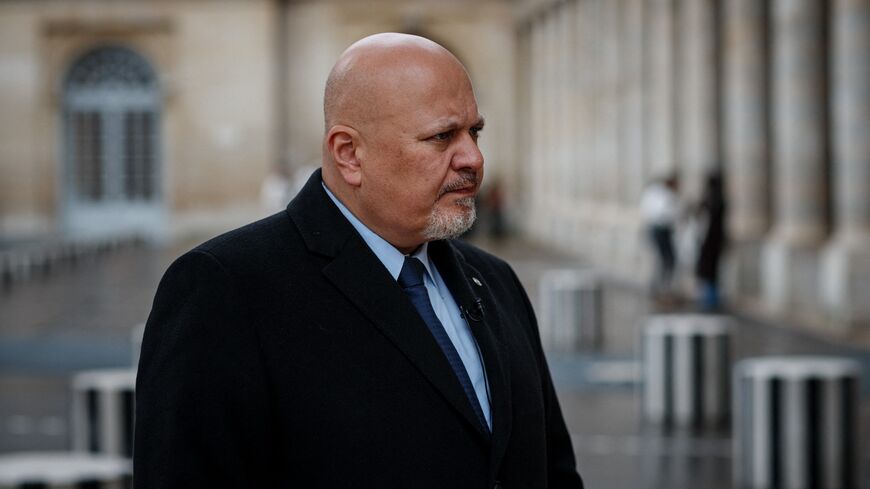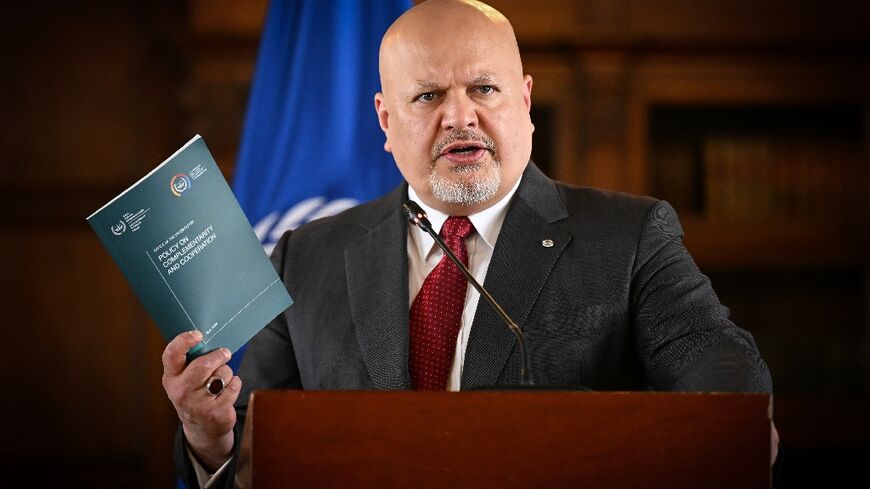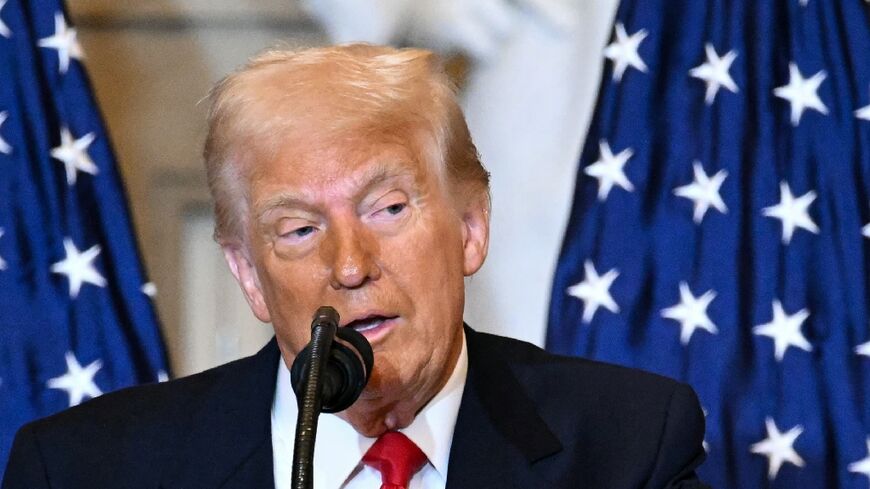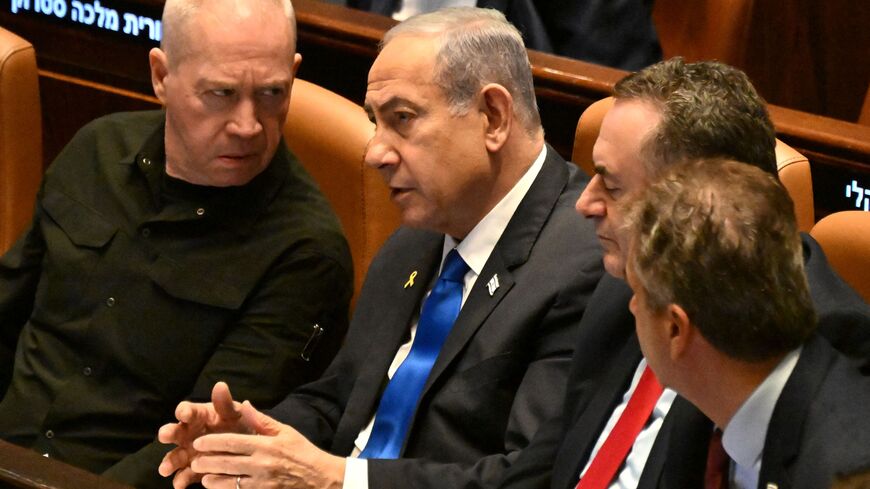ICC warns against intimidation amid rumors of warrants for Israel PM, others
The office of International Criminal Court Prosecutor Karim Khan emphasized that attempts to influence the ICC's work constitute an offense against the administration of justice under the Rome Statute.
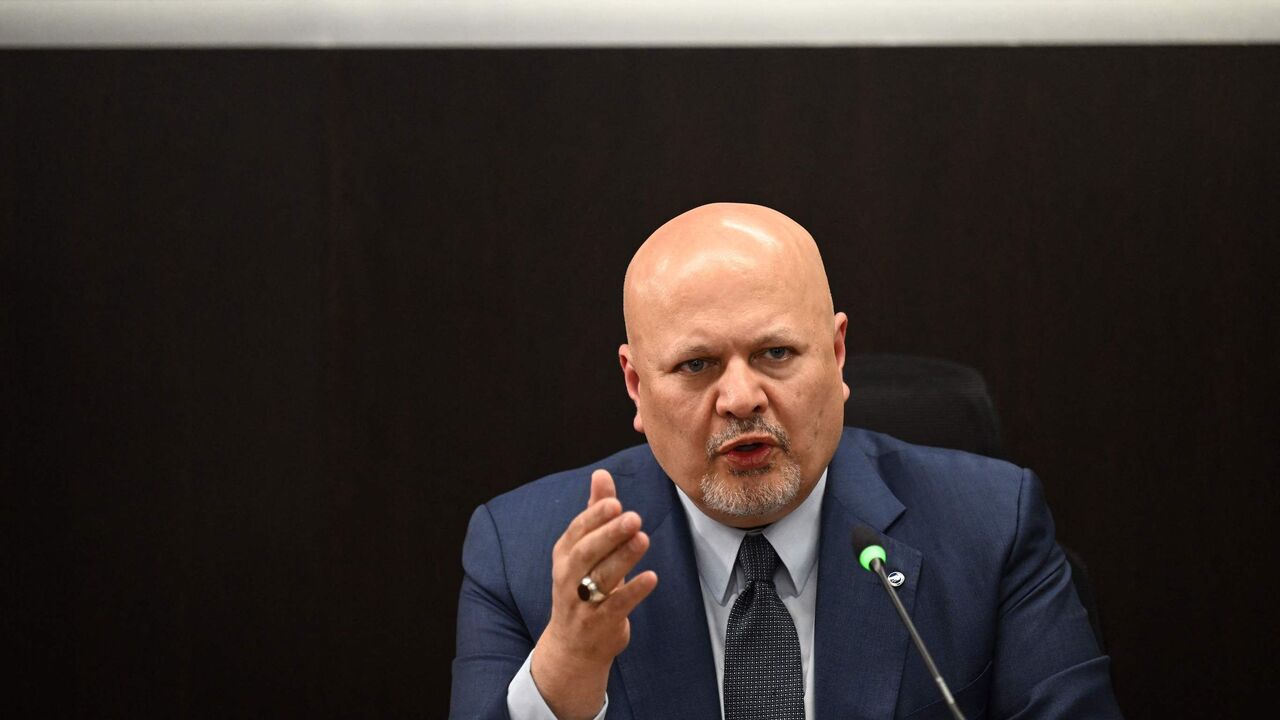
International Criminal Court Prosecutor Karim Khan issued an unusual statement on Friday, warning against attempts to intimidate the court or any of its staff with the intent to influence its work.
The warning came against the backdrop of several reports this past week alleging that Israel along with the United States and other Western countries were pressuring the ICC not to issue arrest warrants for Israeli Prime Minister Benjamin Netanyahu or his cabinet ministers.
Khan's office stated on X that the court as a rule encourages constructive dialogue with all stakeholders, but be that as it may, the independence of the ICC should never be threatened. The statement further read, in part, that the “independence and impartiality [of the Court] are undermined, however, when individuals threaten to retaliate against the Court or against Court personnel should the Office, in fulfillment of its mandate, make decisions about investigations or cases falling within its jurisdiction. Such threats, even when not acted upon, may also constitute an offence against the administration of justice under Art. 70 of the Rome Statute.”
On April 26, Netanyahu had posted on X, “The threat to seize the soldiers and officials of the Middle East’s only democracy and the world’s only Jewish state is outrageous.” He added that Israel will continue the war in Gaza against Hamas and that under his leadership, it will “never never accept any attempt by the ICC to undermine its inherent right of self-defense.”
Three days later, on Monday, Axios revealed that during a Sunday phone call about the war and negotiations for the release of Israeli hostages held in Gaza, Netanyahu had asked US President Joe Biden to help stop the ICC from issuing arrest warrants for senior Israeli officials, including himself.
Yesterday, Nadav Eyal, writing for Yedioth Ahronot, revealed without naming names that Israel had appealed to Mike Johnson, Speaker of the US House of Representatives, and to US senators, requesting that they intervene with the Biden administration and the ICC over concerns of warrants being issued for Netanyahu and other Israel leaders for their conduct of the Gaza war. Eyal wrote that senators might push for some sort of legislation against the court if warrants are, indeed, issued. Later in the day, Barak Ravid, reporting for Walla, wrote that four unnamed Democratic and Republican senators had held a virtual meeting with senior officials at the ICC, expressing their concern about the possibility of the court issuing warrants for the Israelis.
Yuval Shany, a professor of international law at Hebrew University, told Al-Monitor that Friday’s ICC statement sends a clear message to Israel and all its partners that the court intends to protect its independence and will not accept any form of outside pressure.
“This statement is certainly unusual, but not really a first. The ICC has faced external pressures in the past over its investigations,” Shany said. “The most conspicuous example is that of the Trump administration in 2020 blacklisting ICC Prosecutor Fatou Bensouda and senior ICC official Phakiso Mochochoko over their investigation into whether American forces committed war crimes in Afghanistan, banning their entry into the country and allowing their assets to be frozen.”
Shany further remarked, “The statement issued Friday by Khan's office clearly refers to article 70 of the Rome Statute [on offenses against the administration of justice]. Neither the United States nor Israel are members of the ICC, so this statement apparently does not target these countries directly, but rather member states. There were reports that Israel had asked Germany, France and Britain to intervene on its behalf. Of course, I cannot tell if this is true, but the statement might have referred to such moves.”
The professor stressed that regardless of whether the ICC intends to issue warrants against the Israelis, the court nonetheless wants to make clear that pressuring judges, prosecutors or anyone else working there is unacceptable. That being said, he does not know whether such tactics will play a role in the ICC's decision on possible warrants.
“It is unclear whether all the reports on possible warrants are indeed founded on concrete information or just speculation or spin, so I cannot say how real this is,” said Shany. “What I can say is that the ICC is investigating both Israel and the Palestinians and that it is rather evident it intends to charge both Hamas people and Israelis.”
Shany added, “That being said, of course the ICC prosecutor also has discretion over the timing. If he estimates that issuing warrants could sabotage efforts to stop the war, he might decide to wait to request such warrants. There is also another option — that the warrants will be issued under seal, in order to increase the feasibility of actually using them [at a later date].”

